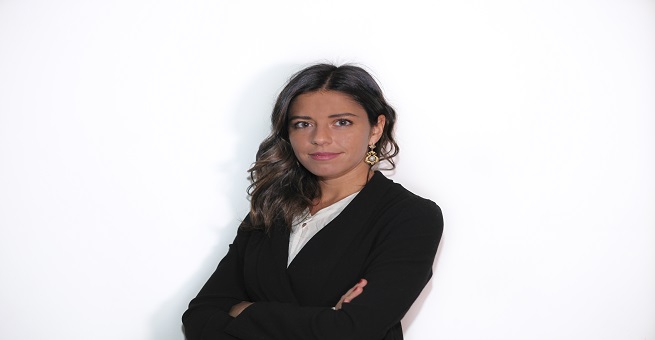Good afternoon, it’s my pleasure to share some insights and suggestions with your readers. I graduated with a bachelor in management engineering from Milan Polytechnic University. Upon graduation, back in 2008, I joined Goldman Sachs in London for a summer internship and worked in the Italian M&A group. After the completion I was offered a full time role at the bank. Summer 2008 ended with the collapse of Lehman Brother. As you can imagine, financial markets weren’t that hot, and M&A was frozen by the uncertainty the crisis brought in. After some considerations, I decided not to join back Goldman. Hence I was faced with two choices: looking for another job or pursuing a Master in engineering. The idea of going back to school was not appealing anymore after my exciting work experience and I wanted to enter the job market immediately. So I landed a job offer at the strategic consulting firm Bain & Co., in Milan. I worked there for 2.5 years, then attended an MBA at Harvard and joined back the firm in 2013. In 2015 I moved to Idea Capital Funds to oversee direct private equity investments in the food and beverage industry.
Thanks for the introduction. Your background offers great sparks for interesting questions. As you have experience in both consulting and investment banking, how would you compare the two roles?
During my internship in Goldman, I was involved in a cross-border merger between two major banks. I was directly involved in the due diligence process, coordinating the advisors and the financial modelling, hence I was exposed to a great variety of tasks. I believe investment banking really gives fresh graduates a steep learning curve, but I also think that the curve tends to last less than in consulting. In management consulting, junior people are exposed to a wide array of industries, people and projects, hence tasks as well as situations are rarely repetitive. Differently from investment banking, where you tend to become an expert in a smaller subset of tasks and industries, consulting fosters your professional development better and equips you with a broader skillset. In all honesty, initially I was more keen to join investment banking, but I am very happy of the decision I made to kick off my career at a consulting firm.
Great! The never ending battle between IB and consulting… On what kind of assignments and projects you worked on during your time in Bain?
For the first year and half of my experience in Bain, I mainly focused on clients operating in the oil and gas industry. My first project was in this sector, and the team really liked my contribution, so they wanted me on board for other engagements. After some time, as I was getting more senior, I asked to be relocated to other industries and focused on fashion and luxury. This represents one of the strongest practice in Bain and one of the most fertile industry in Italy. Moreover, every assignment in this industry was overseen in Italy, so my local experience became more international as I was exposed to projects all across Europe and America. The majority of the projects I worked on involved strategic assignments spanning from expansion to repositioning strategies. As a consultant, the starting point is the assessment of the client firm as it is, the assessment of the markets the company operates and then you are required to provide a recommendation that can involve both external and internal growth paths as well as strategic changes.
Switching now to private equity, which motivations led to pursue a career as an investor?
As time passed by, I realised that consulting was not my long term ambition. As you escalate the ranks of the firm, your job becomes more about selling projects and you do not follow the implementation of it. Let’s say that I wanted to stay on the “driving seat”. I thought that corporates do not offer many opportunities in Italy and moreover it is difficult to for young candidates to obtain senior roles within big organizations. On the other side, working in a smaller private equity fund offers important responsibility and envisages high accountability. It is a result-driven environment and I like the fact that you follow every aspects of a transaction, from the investment to the exit.
So, what’s the most important skill you learned in consulting and how it contributes to your career in PE?
As a consultant you are faced with many issues that require excellent problem solving skills. Moreover, you are often required to solve these issues in a short time frame and with little guidance, hence you realise how to cope with problems by yourself and rely on your skills. In addition, since you are assigned to different teams and different clients you develop an unmatchable ability to work in team and deal with people with different background and seniority. I think this is crucial when you work in private equity. In fact, when considering an investment you are faced with many different parties and developing good relationship with them is very important. First of all, it’s important to have a solid relationship with financial advisors: they propose target companies to many investors, and it is valuable to be on the top of their list. Secondly, it is important to build a honest relationship with entrepreneurs: in the end, they are the ones who decide which investor is welcomed into the company.
This is very insightful indeed. Can you share with us an overview of your current fund?
Idea Capital Funds is an Italian alternative asset manager with two distinct platforms: a fund of funds platform and a direct fund platform, where I contribute. We are currently investing a fund called “Idea Taste of Italy”. This fund is innovative as it targets firms operating in the food and beverage industry that aim to expand both in Italy and abroad. Firms revenue should fall between €20 and €100 million and the equity ticket is between €10 and €30 million. We believe that this sector offers significant opportunities and that entrepreneurs not only need financial support, but also network and expertise. For this reason, the fund’s Industrial Committee includes sector’s experts such as Mr Oscar Farinetti (Eataly), Mr Daniele Ferrero (Venchi), Mrs Claudia Rovagnati (Rovagnati) and Mr Niccolò Branca (Distillerie Branca). We believe this conciliates entrepreneurs and financial investors.
Would you like to share with us a transaction you have worked on and you find remarkable?
My first deal in private equity is also the first deal of “Idea Taste of Italy”. We have acquired a majority stake in a food chain called “La Piadineria”. The firm was established by two entrepreneurs in Brescia and it sells the typical “piadina” across Italy. After having introduced a franchise model, the company currently counts on a total of 92 points of sale. Following the transaction, the two owners retained a minority stake in the company. This deal is quite recent and was closed just few months following my entrance in the fund. We are currently contemplating the strategic initiatives to foster the expansion of the company both in Italy and abroad and redesigning the concept of the stores. I have been heavily involved in this part and took care of the whole development of the strategic plan. It was very exciting as it is really hands-on and I am following the implementation of the plan very closely.
So if you had to choose one phase of a private equity investment, which one would you pick up?
I believe that given my background in management consulting, I can contribute better to the management of portfolio companies. PE activity has changed over the last years and as leverage is not the premier instrument for value creation. The growth and development of portfolio companies is becoming the most crucial part in order to extract the highest value and involvement in companies’ daily operations must be maximum.
Turning to current market conditions, what’s your view about private equity in Italy and which are the sectors that interest you most?
I believe Italy constitutes a great opportunity for private equity investors as it is crowded with small and less managerial firms with great potential for growth. At the same time, this feature represents also an obstacle: it is often difficult to convince entrepreneurs or controlling family to open their firms to financial investors. Hence, it is essential to have people on board that can convince entrepreneurs of the real value that you can bring to their companies, a person they can rely on and that shares their experience. For what concerns industries, I have always preferred to follow niches of excellence. Italy excels for food, fashion and luxury. Among these, I like food a lot. Fashion and luxury have been highly inflated, while food & beverage has been overlooked. It’s here that the majority of opportunities is hidden. To be crystal clear, when speaking about food & beverage, I not only refer to the part of the chain related to the production but to the whole value chain from food processing equipment down to the retail, including restaurants’ chains final distributors.
Great! Let’s revert back to your career for this final part. You attended an MBA at Harvard, the most sought after business school in the world. Would you recommend to pursue an MBA after some years of professional work experience?
I would definitely recommend everyone to attend an MBA. It is a great and transformational experience that widens your horizons, improves your self awareness and self confidence, lets you appreciate the true values of life and exposes you to a variegated network of very stimulating people. You not only spend time thinking about your career but also about what you want to do with your life in more general terms. It inspires you to think big. I remember on the same day we had on campus three great people: Jamie Dimon of J.P. Morgan, Dalai Lama and the Head of FBI. As you can imagine, you are exposed to people and situations where you constantly learn. I have to admit that hitting the right timing for an MBA is also crucial. When I started my MBA I was 24 and I was indeed very young (the average age of a first year MBA candidate is 27). Possibly, it’s better to enrol once you have accumulated more experience so that you can contribute better to class discussions and appreciate it with more maturity. Following my great experience in the States, I decided to come back to Italy, mainly for personal reasons. One issue in Italy is that most of the firms don’t know how to handle MBA graduates and where to place them in their organizational structures. Firms abroad are more often exposed to those types of candidates. But I don’t regret my choice.
Would you like to conclude with some suggestions for recent graduates? Any hot tip for a good career start?
Since I co-founded a mentoring partnership (Mentors4u, ndr.), I feel personally attached to this part. First of all, in today’s competitive and crowded world, it is important that each graduate builds his own story and differentiates himself. Firms receive many CVs from outstanding candidates, so stellar grades are not enough anymore. Be different in a natural way: so just follow your passion and all the dots will connect. Secondly, spend time building your own network and know many people. One day, you may come across as colleagues, as competitors or engage in some sort of activity together. Lastly, pay attention to your own reputation and what’s the impression other people have of you: be reliable and fair. Reputation is one of your most important assets.
Thanks very much for the insightful conversation Miss Boroli. It has been a pleasure for us to host you at our “Coffee break with…” and to hear about your career, receive your advices and your thoughts about the industry.
Interview conducted by Alfonso Meccariello
Posted by theprivateequityclubforbocconistudents





